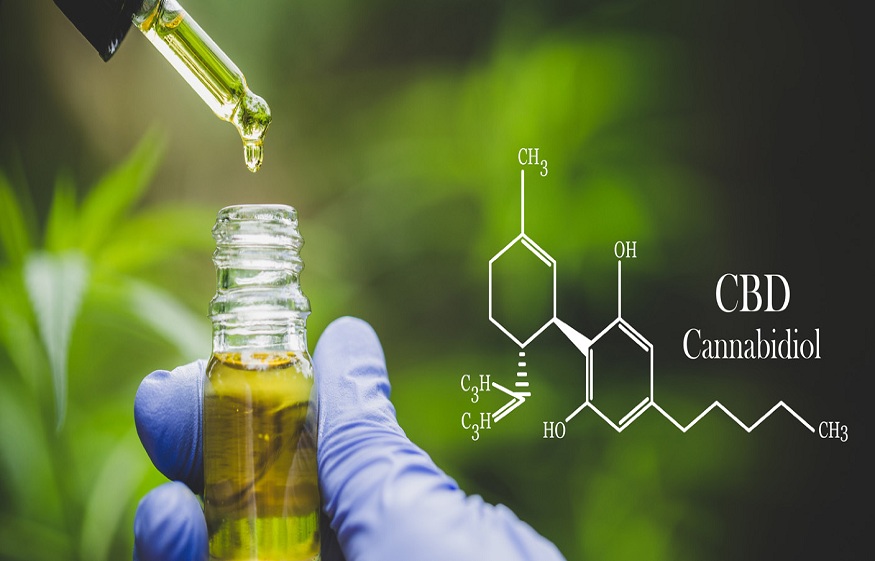Do you know international athletes such as Megan Rapinoe and Lamar Odom and many more who are endorsing the use of CBD? As an athlete, we have been told to push our comfort zone. Nobody is complaining, but regular physical activity puts a lot of pressure on the body. It is true that stress from training boosts performance and adaptation, but physical trauma and continued wear and tear also cause pain and injuries. Although medicines are available in the market, there are sections of people who are interested to know natural alternatives. In this blog, we are going to limit our conversation to CBD or cannabidiol or cannabis products and how it helps athletes in improving their performance.
Is CBD even legal for Athletes?
For the first timers, what exactly is CBD?
To start, your body already contains cannabinoids. The endocannabinoid system (ECS), which regulates the activity of neurons, has been identified by scientists. The ECS’s main role is to maintain homeostasis, which it achieves via controlling neurotransmitter levels. You may think consuming CBD is increasing your body’s natural endocannabinoid system.
As an athlete, you put your body under more stress, which causes pain and inflammation that are more severe than what your endocannabinoid system can handle. Exogenous CBD may help this overworked system take back control of your neurotransmitters and assist athletes in maintaining homeostasis.
Benefits of CBD for Athletes
Helps to relieve pain:
Studies have demonstrated that cannabis, which contains primarily THC and very little CBD, is useful for easing pain, including musculoskeletal discomfort brought on by exercise and stiff joints. There is little research on CBD alone, but despite the lack of conclusive proof, many athletes seem to find CBD to be a helpful pain reliever.
Reduces Inflammation:
A small amount of inflammation can benefit athletes and stimulate positive training response, but excessive inflammation can hurt your performance and hinders recovery. Both the brain and the periphery contain CB2 receptors, but immunological organs have a higher concentration of them. By lowering the production of cytokines (cell messengers), cannabinoids that bind to CB2 receptors may have an anti-inflammatory impact.
Settle your gut:
One of the main reasons athletes withdraw from races is GI distress, which is brought on by inflammation in the small and large intestines. Dehydration and hyperthermia, which are the two biggest causes of stomachaches in athletes, won’t be resolved by CBD, but if you have underlying inflammation problems that create gut problems during or after exercise, CBD may be useful for easing your symptoms.
Increased Sleep Quality:
One of the most effective ways an athlete can increase training gains is by getting more and better sleep. According to anecdotal evidence, athletes who use CBD claim that it is easier to fall asleep and that their sleep is more restful.
When your brain consumes carbohydrates for energy, adenosine triphosphate (ATP) breaks down, and adenosine gradually builds up in the brain. Increased adenosine binding to neurons prevents neurotransmitter release, which reduces brain activity, makes you feel calmer, and promotes sleep. As you sleep, your body breaks down adenosine; subsequently, low levels of adenosine aid in your reawakening, and the cycle repeats.
How Should I use CBD?
CBD can be consumed orally or topically as an oil. Additionally, CBD oil online India is available in topical creams, lotions, and drops that can be ingested orally as tinctures. The speed at which CBD takes effect may depend on how you take it. It could take a little longer for capsules, oil, and edibles to work because they need to be digested.
CBD comes in “full spectrum” or “isolate” forms. Full-spectrum CBD products include THC and other chemicals that may also be present in trace amounts of THC. Legally, the THC percentage in a CBD oil must be less than 0.3% if the CBD was produced from industrial hemp. From an anti-doping perspective, CBD isolate and CBD derived from hemp would be a superior option for athletes.
What else should I know about CBD before consuming it?
Despite the fact that CBD is natural and comes with only a few minimal side effects, you should still consult a doctor before using it. This is particularly important if you have a health issue or are taking medicine. Start using CBD in small doses if you’re new to it, and avoid using it right before an athletic event or activity. You can experiment with various CBD forms and consumption methods.
Conclusion
CBD-based products might mark a major turning point in how athletes recover from training stress and manage both occasional and chronic pain. As we have seen from the above conversation that CBD indeed shows promise in treating a number of conditions associated with athletic competition, like joint pain, inflammation and muscle soreness. There is still a lot to discover about how CBD functions and how to use it with athletes. Hence, before you take CBD-based products, it is suggested that you take a consultation with a doctor or get in touch with Hempstrol on-boarded cannabis-certified doctor. They will take into account your fitness goals and your diet and will then suggest you a product meant for your body.

